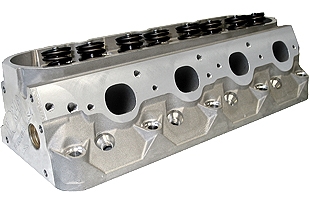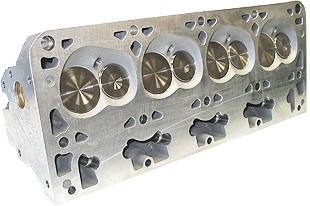Motown LS Engine - Mitchell's Monster
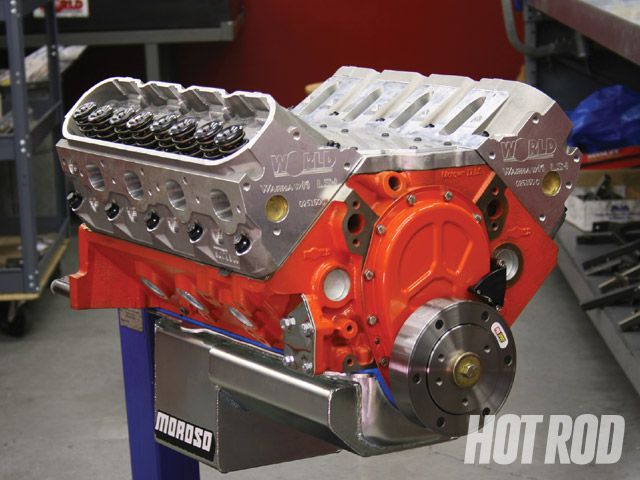
Here's the long-block assembly of the Motown LS. It all looks strange at first glance but surprisingly logical the more you think about it.
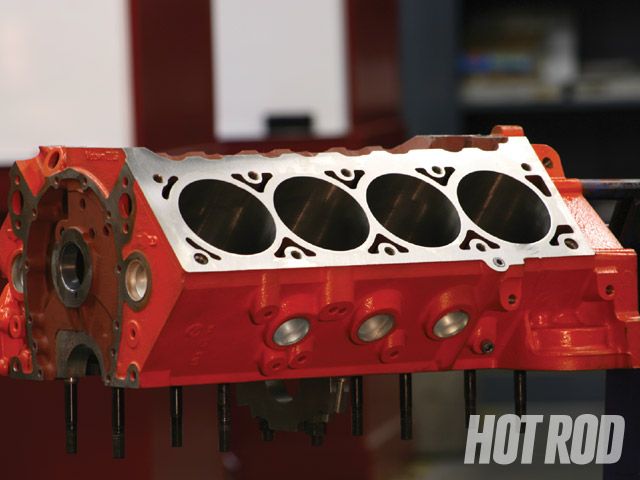
The enabler for the Motown LS hybrid is World Products' redesigned Motown II LS cylinder block, which adapts LS heads to Gen I small-block architecture. The decks are raised to the LS-production spec of 9.240 inches, so any LS intake will bolt right up.
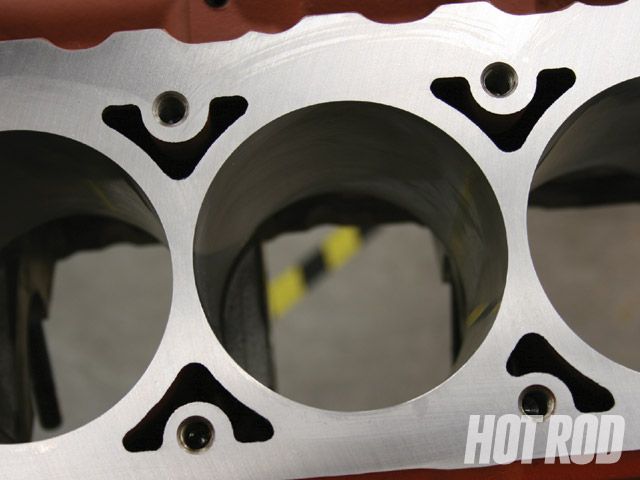
At a glance, you think you're looking at an LS block, but this shot illustrates the water passage and head bolt designs that were transferred to the traditional small-block. This block uses four head bolts per cylinder, like a production LS engine.
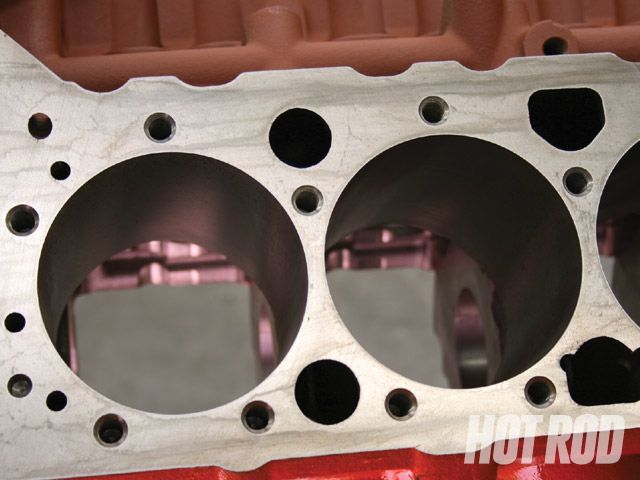
For comparison, here's the standard small-block deck. Redesigning the water passage was a big deal because the small-block feeds coolant into the block first while the LS pushes it through the heads first.
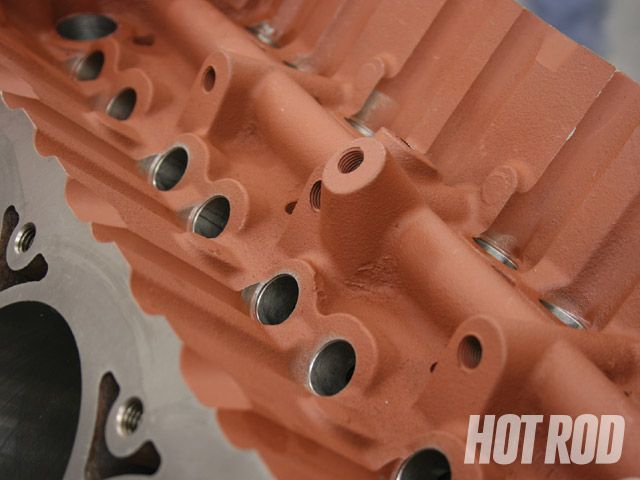
The block also incorporates the oiling system changes of World's brand-new Motown II block, meaning the oil restrictors are moved from the rear of the block to the valley for easier access. The cam journal oil holes also are relocated to ensure adequate flow with a high spring pressure.
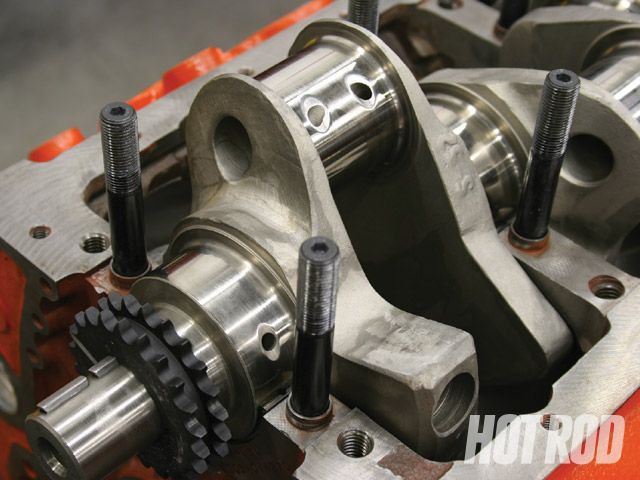
A standard small-block crankshaft is used without modification. In the case of this first Motown LS buildup, it's a 4.00-inch stroker that will complement 4.125-inch bores to deliver 427 ci of displacement.
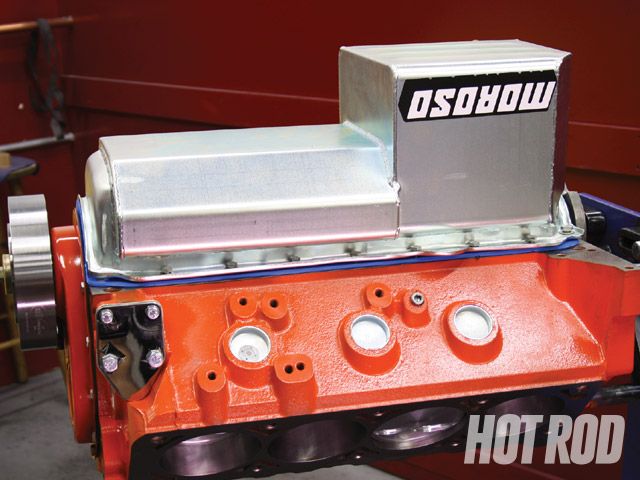
Another standard small-block item is the oil pan-same goes for the motor mount locations. Those features enable cheap, hassle-free installation in an older vehicle or race car originally designed for a small-block.
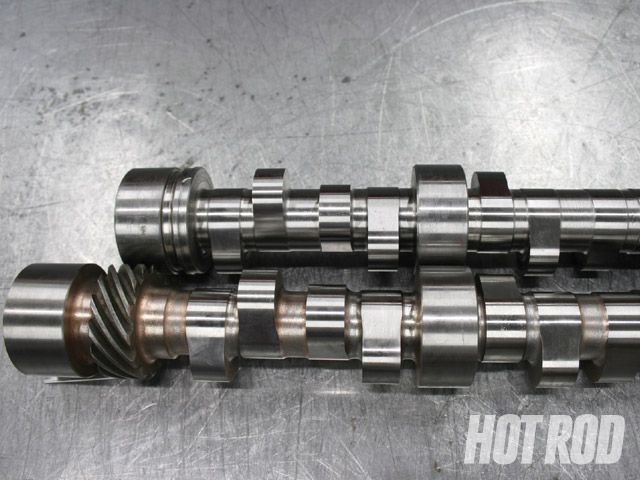
The Motown LS requires a custom camshaft, a hybrid of an LS design that will work in the Gen I block and actuate the LS valvetrain. Here, a standard LS cam (top) is shown with the custom stick from Comp Cams. Note the redesigned rear end, where the distributor drive gear is grafted. The system also uses production-style LS roller lifters.
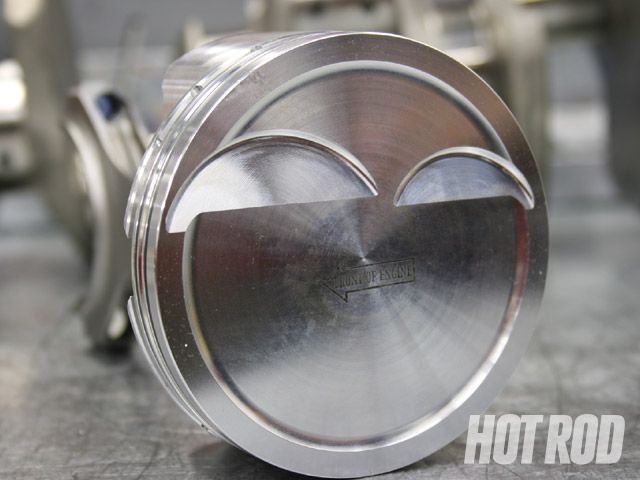
Off-the-shelf forged-aluminum LS pistons for the 4.125-inch bores are used with LS-type metric rings. There's nothing trick about them, and they're used on small-block connecting rods. Compression is a streetable 10.7:1.
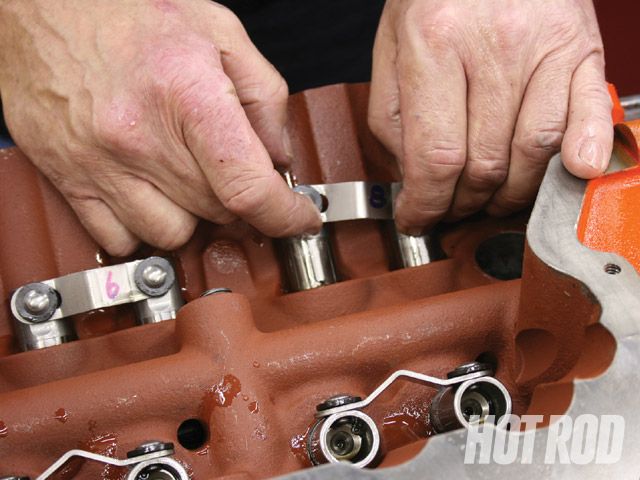
Here are the LS lifters being lowered into the block small-block-style, rather than the through-the-head manner of an LS engine.
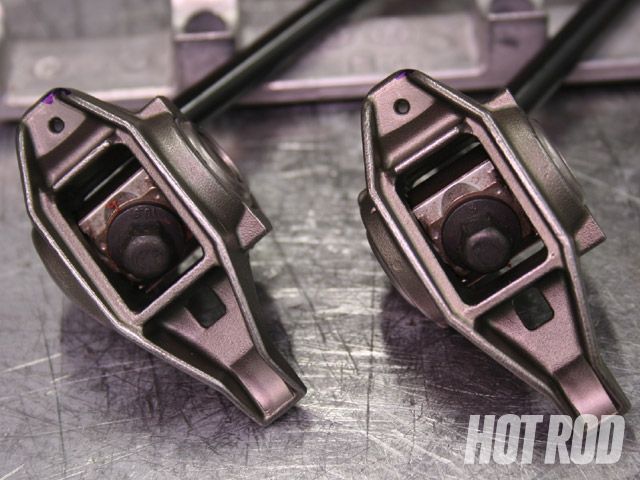
Production LS valvetrain components, including the rocker arms, springs, and so on are used, but the combination requires custom 8.200-inch pushrods because of the non-LS camshaft position.
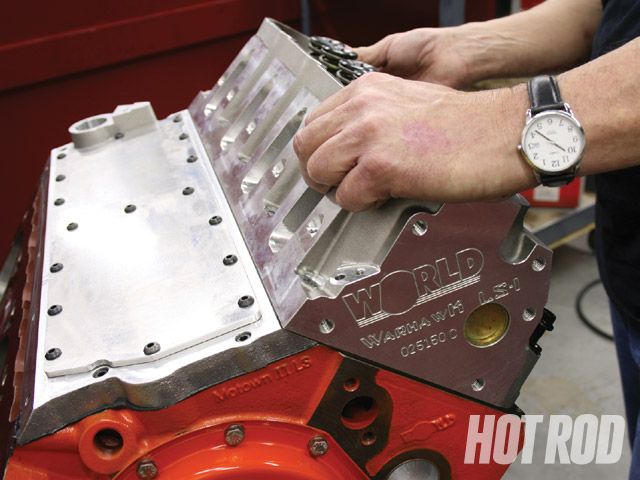
The unique valley cover plate is the key to the Motown LS. It secures the upper portion of the heads and because an LS-type spider intake is used, it provides a mounting location for the distributor. The heads used on this engine are Jim Kuntz-ported World Products Warhawk LS-1s. Two more things to note in the photo: The valley cover has a removable top section that allows easy access to the lifters, and the canted boss at the top of the block (arrow) is for a dry-sump oiling system.
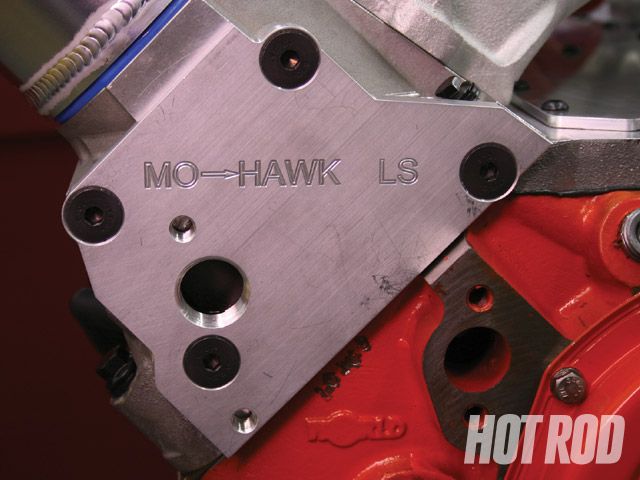
The other unique parts created for the Motown LS include adapter plates for the front of the heads for a water pump, an electric water pump that's used on the heads' outlets to maintain the production-style LS flow pattern, and a crossover tube that's used to connect the small-block's water pump inlet and outlet.
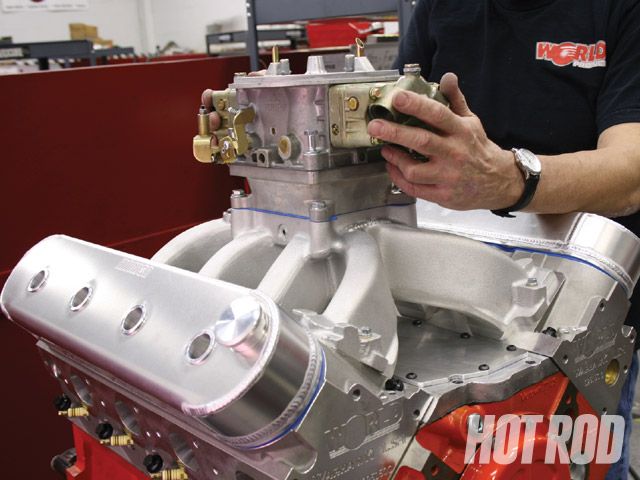
Because the Motown LS has an LS-production deck height, a standard LS intake bolts up without a problem.

Just like with a regular small-block, the distributor drops in at the rear. The only problem is plug wires. Standard small-block wires don't fit quite right, so a cut-to-fit kit is necessary. On this engine an electronic MSD distributor provides the spark. By the way, the Motown LS uses the LS-style firing order of 1-8-7-2-6-5-4-3.
TECHNICAL SPECS:
- Engine Block:
- Deck Height:
- Bore/Stroke:
- Main Caps:
- Cylinder Heads:
- Valves:
- Intake Manifold:
- Carburetor:
- Distributor:
- Timing Chain:
- Crankshaft:
- Connecting Rods:
- Pistons:
- Gaskets:
- Internal Hardware:
- Exterior Hardware:
- Oil Pan:
- Warranty:
- Power:
- Engine #115210:
- Suggested Retail Price:
- Motown LS cast iron
- 9.240 "
- 4.125 " x 4.000 "
- 4-bolt nodular splayed
- Warhawk 15° 235cc aluminum
- Manley stainless steel
- Edelbrock
- AED (custom spec)
- MSD E-Curve
- Double roller
- 4340 Eagle/Scat internally balanced
- 4340 Eagle/Scat
- Manley/Mahle
- Felpro
- ARP
- Totally Stainless
- Moroso
- 2 year/24,000 miles
- 600 hp (10.7:1 compression ratio)
- Motown LS1 427 / 600HP
- $16,399
Sources:
World Products
Ronkonkoma, NY
631/981-1918
www.worldcastings.com

